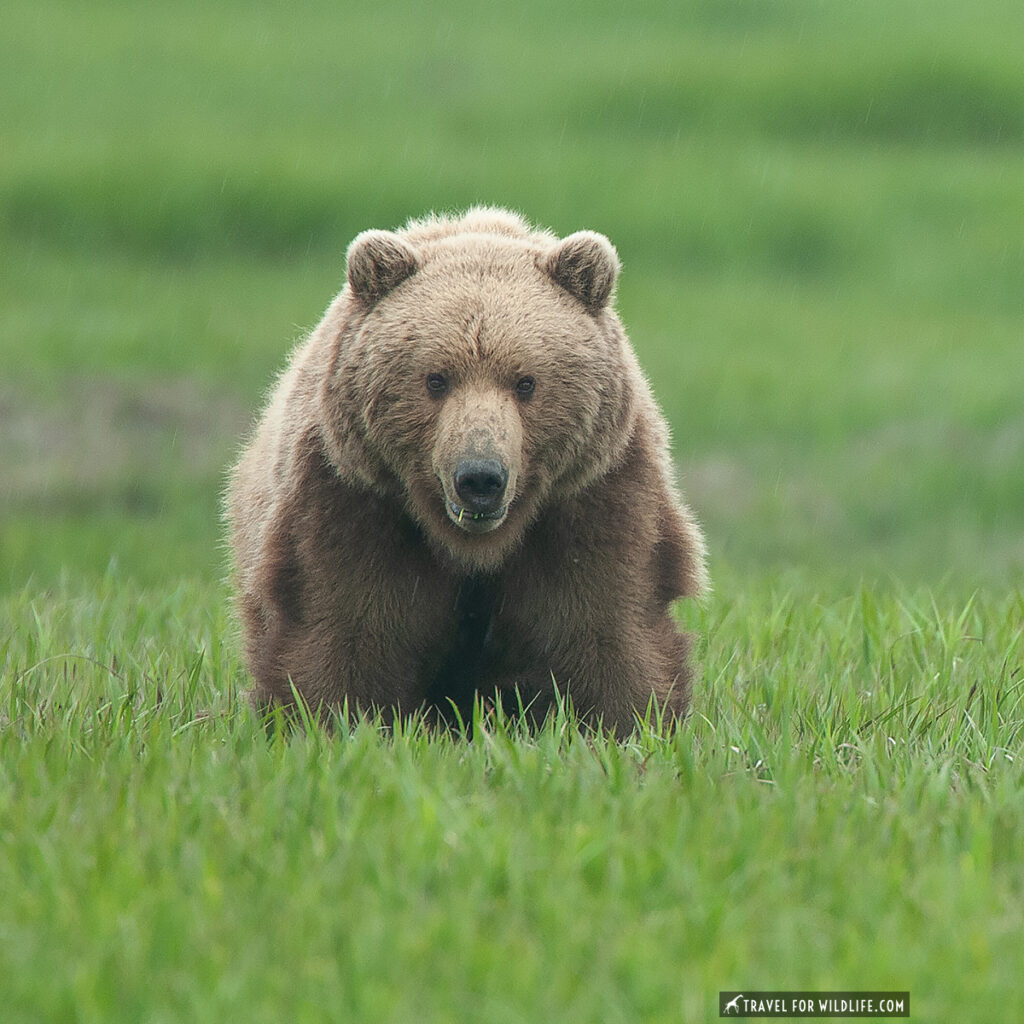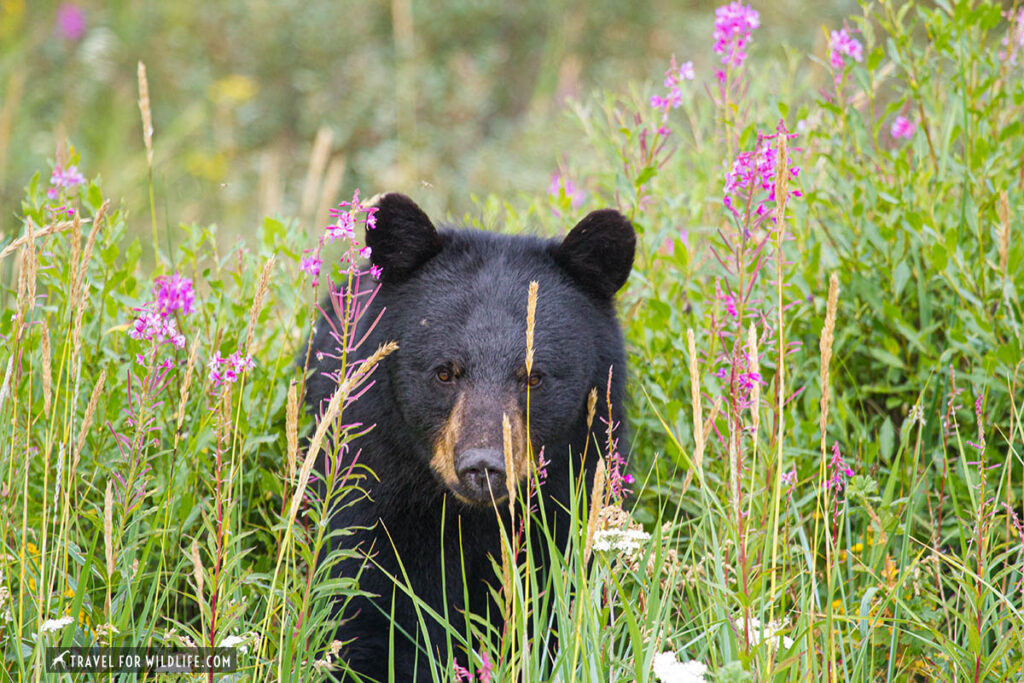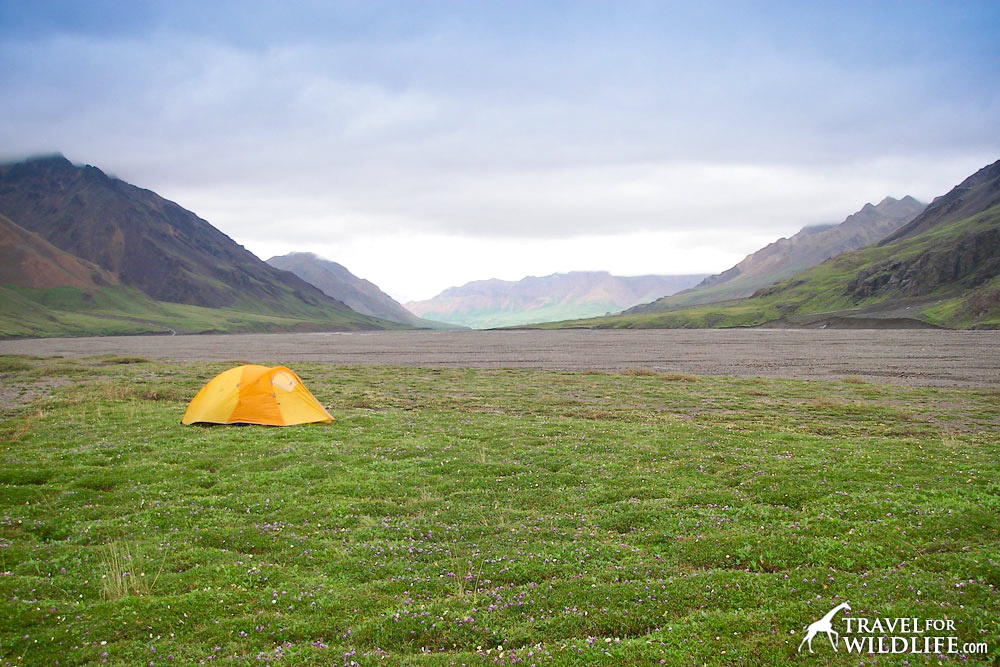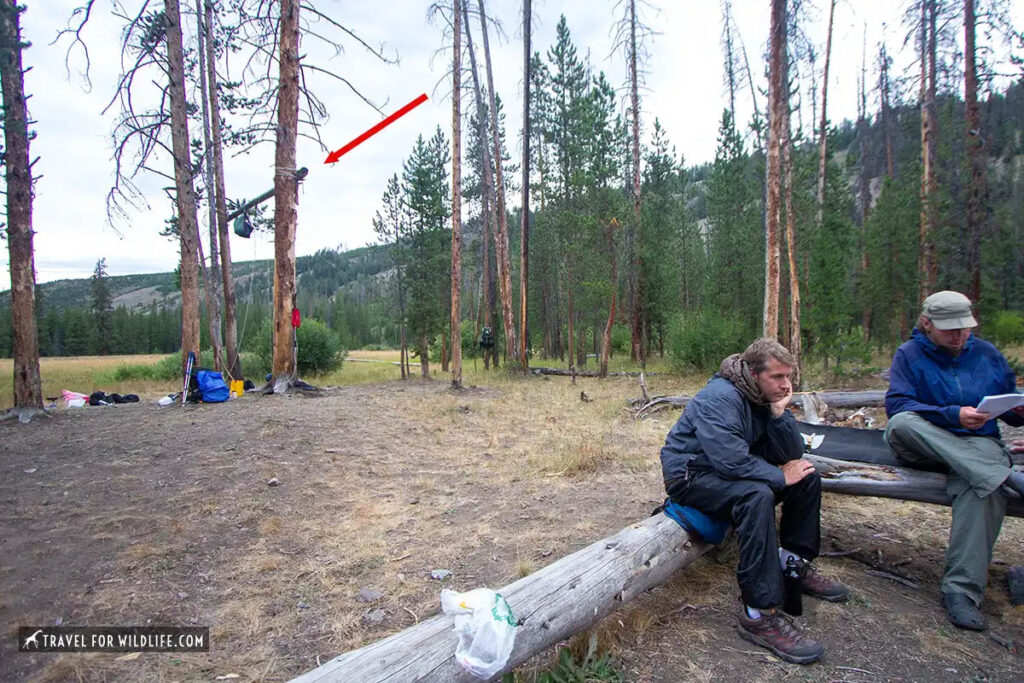Before setting off on a hike, you always plan where you are going, the timing, and what to take with you, right? You should also plan ahead how to hike (or camp) safely around wildlife. Especially bears. It might seem like you’ll only encounter bears if you go to Yellowstone, the Smoky Mountains, or Alaska. But bears occupy a much greater area. Did you know that black bears are found in 40 of the 50 states of the US?

Black bear and grizzly bear ranges are increasing year after year, so before traveling to the wilderness, make sure you check if it’s bear country. If it is, read on for our safety tips on how to hike in bear country.
Don’t assume that because it’s cold, bears will be tucked away in their dens. Just last month (in November) we had a family of 5 bears in our yard in the mountains of North Carolina. Also, grizzly bears might come out of hibernation in early March in Yellowstone.
Always carry bear spray and know how to use it before you set off on your trip. Bear spray is not allowed on planes, so if you are flying to your destination you’ll need to buy it in the area. REI carries them. Watch the video at the end of this post to learn how to use a bear spray. *Do not discharge the bear spray indoors*, learn to use it outdoors.
NEVER EVER give food to a bear, approach it, try to get a selfie with a bear, or try to pet it. If you are in a national park and see someone doing this, take a photo (try to include the license plate number) and report them at the office. A fed bear is a dead bear.

Hiking in bear country
- If you see a bear before it notices you: stand still, don’t approach, and enjoy the moment. If it’s moving in your direction, make sure he knows you are there and announce yourself with a loud and grave “Hey Bear”. The bear will most likely turn around. If you don’t announce your presence you might startle the bear when it’s too close and it might react violently. (I mean, if you startle me I might scream so it’s understandable to have a reaction.) Once the bear is moving away, move away quietly in the opposite direction. We had an encounter with a mother grizzly and her cub in British Columbia and we did this. You can read the story here.
- If you encounter a bear that’s aware of you: don’t run; running may trigger a chase response. Back away slowly in the opposite direction and wait for the bear to leave.
- Be aware of your surroundings, try to make noise periodically, and don’t use earbuds.
- Don’t hike alone.
- Keep kids within sight.
- Make noise in thick cover.
- Be extra aware when foraging for berries or nuts. Bears are doing the same!
- Always KEEP YOUR PETS ON A LEASH or leave them at home. Dogs may harass bears and cause them stress, and in return, a bear may attack your dog.
- Do not litter. Pack out your trash. Getting bears habituated to human food sources makes them more likely to have dangerous encounters with humans.
- Don’t get between a mother and her cub. If a mother thinks her cub is in danger, she will protect it. If you see a cub, always look for mom and be aware.

Camping in bear country
- Set up backcountry camps away from dense cover and natural food sources.
- Keep your camp clean. Do not leave food sitting around, and always lock it up (in the car, or in a bear-resistant container) if you go out for a hike.
- Do not keep anything that smells like food or toiletries in your tent. No snacks, no toothpaste, no deodorant, no sodas, no lip balm, no sunscreen, no bug spray.
- If you camp with your pet and need to keep a litter tray in the tent, use unscented litter and keep it clean. No pet treats either.
- If car camping, keep food and toiletries inside a locked vehicle and make sure all the windows are closed. Bears have learned how to open unlocked vehicles and how to bust opened windows.
- If backpacking, keep food and toiletries suspended at least 10 feet above the ground and 10 feet from any part of the tree. Some parks already have a system in place (see red arrow in the photo below from a backcountry campsite in Yellowstone). This regulation might vary from national park to national park so always check for regulations at the park’s entrance.

Cooking in bear country
- When cooking do not dump food waste in your fire (or outside the fire for that matter). No bean sauce, or meat fat, or anything else.
- Cook away from your tent so you don’t attract bears to your sleeping area. Many regions recommend a “bear-muda triangle” approach, with your tent at the first corner (preferably upwind), your food storage at another corner, and your cook area at the third, separated by 100 yards. A variation puts your wash-up area at yet another distant point.
- Put all the trash in a bag inside a bear-proof storage locker or trash can that most campgrounds provide. If none is available, put the trash inside your locked car. If you are on a backpacking trip, invest in a bear-resistant food container.
Remember to carry your bear spray within reach, do not pack it in the bottom of your backpack.
WATCH THIS VIDEO AND LEARN HOW TO USE YOUR BEAR SPRAY
Bears are not out to get you
Remember, bears are not out to get you. They are just going about their lives like you and me. And like you, they would rather not get into a conflict. If we learn to respect bears rather than fear them, and take a few common sense precautions, we can all live together happily.
